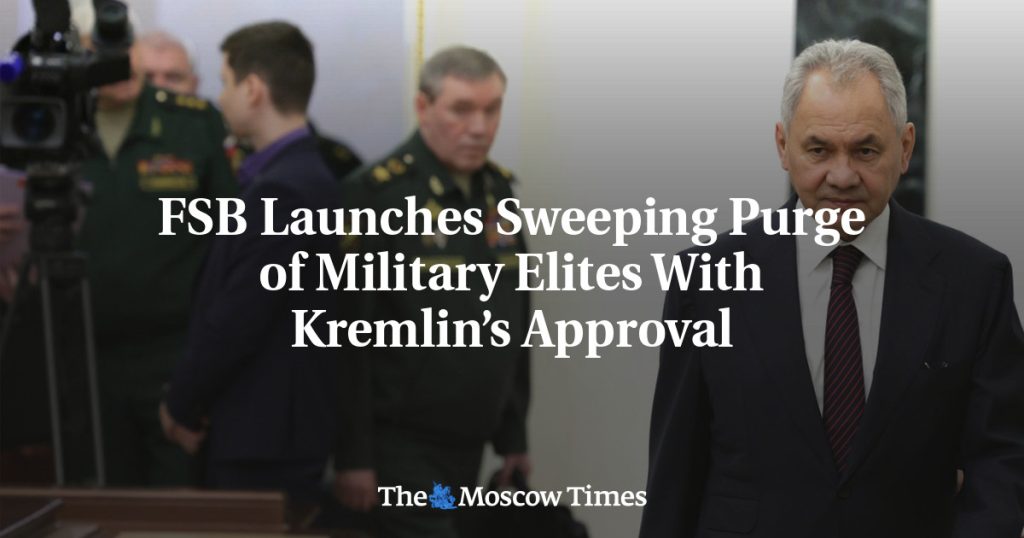The recent arrests of five top Russian military officers are believed to be just the beginning of a broader purge of military figures by the security services, with the approval of the Kremlin. The Federal Security Service (FSB) aims to root out military corruption and hold high-ranking generals accountable for the failed 2022 invasion of Ukraine. This purge risks causing disorder within the army at a critical time when Moscow is looking to capitalize on Ukraine’s weapons shortages and expand its presence in Ukrainian territory.
The ongoing purge appears to result from wartime infighting between the security services and the Defense Ministry for resources and influence, with the FSB emerging as the favored agency of President Vladimir Putin, a former KGB agent. More arrests are expected in the coming months, with the possibility of dozens or even hundreds of individuals across different ranks being targeted within the Defense Ministry. The FSB’s campaign against corruption could potentially become one of the largest purges in modern Russian history, further solidifying the agency’s position in the security landscape.
The Kremlin has portrayed the arrests as part of a broader anti-corruption effort rather than a targeted campaign, emphasizing that corruption is being addressed at all levels of government. However, the timing of these arrests following Defense Minister Shoigu’s ouster raises questions about the motives behind the crackdown. The fact that investigations into military corruption have been ongoing for years suggests that authorities were aware of these issues but refrained from acting due to Shoigu’s influence.
The FSB’s actions are viewed as a calculated move to shift blame for the failed invasion onto the military leadership, positioning the security services as victors in the power struggle within the security apparatus. With key figures like Shoigu and Security Council chief Nikolai Patrushev removed in recent reshuffles, the FSB seems to be gaining control and influence over key decision-making processes. The potential for FSB officials to receive promotions and accolades for their anti-corruption efforts underscores the agency’s rising prominence.
Despite concerns that the ongoing purges could disrupt military operations during a critical time in the conflict with Ukraine, there are indications that the FSB is primarily focused on consolidating power and securing control over key budget allocations. The FSB’s ability to influence strategic decisions and place its own personnel in key positions highlights the broader implications of the current power struggle within Russian security circles. As the purge continues, there are fears that the military leadership’s instability could impact Russia’s strategic objectives in Ukraine and beyond.
The situation underscores the complex dynamics at play within the Russian military and security establishment, where internal power struggles and competing interests are coming to a head. The purge of top military officials represents a significant development with far-reaching implications for Russia’s security landscape and its ongoing military operations in Ukraine. As the FSB consolidates its influence and control, questions remain about the impact on the war effort and the future direction of Russian military and security policies under President Putin’s leadership.


